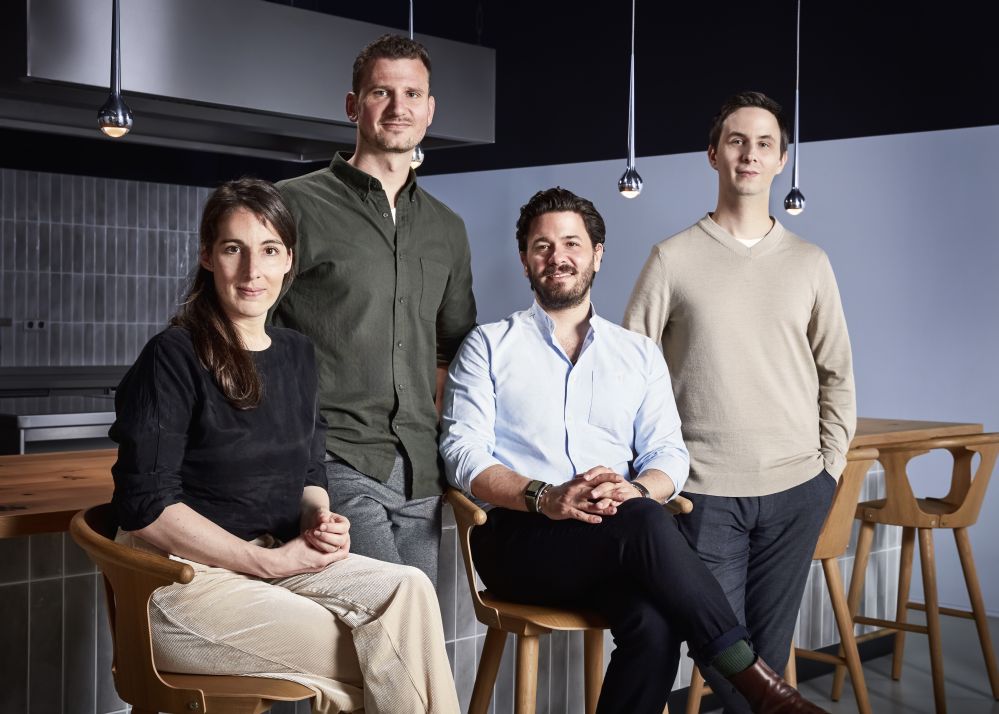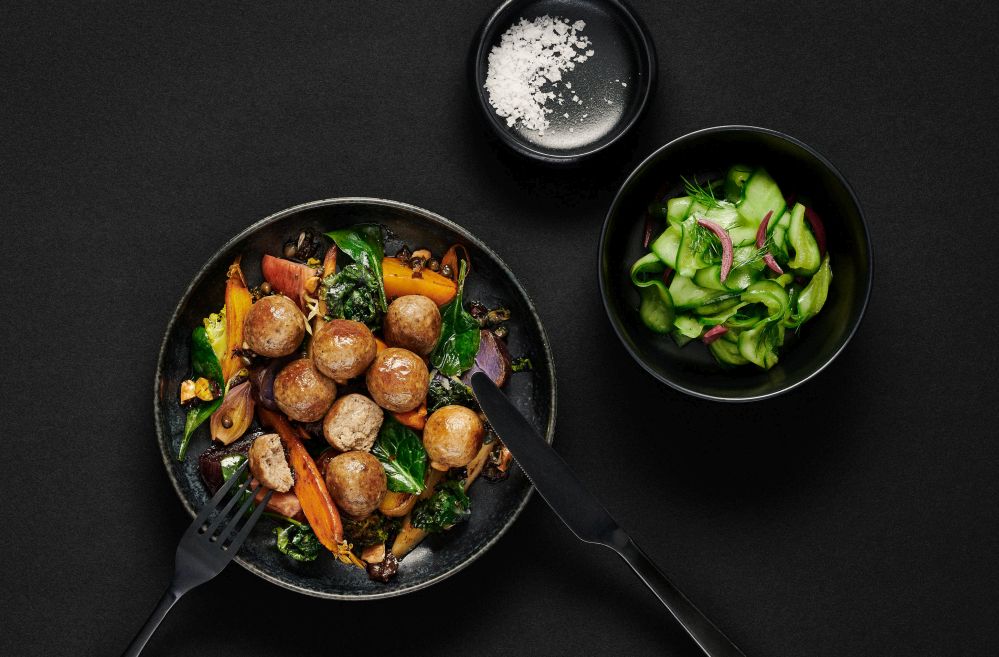At a time when many alt protein companies are struggling to raise funds, Hamburg-based Infinite Roots (formerly Mushlabs) has netted $58 million to scale its mycelium fermentation platform, securing capital from a leading European retailer and the holding company behind Haribo.
The series B round was led by Dr. Hans Riegel Holding (HRH) with support from the European Innovation Council (EIC) Fund, German retail giant REWE Group, and Betagro Ventures, the venture arm of Thai agrifood giant Betrago.
Existing investors in the startup including Clay Capital, FoodLabs, Redalpine, Simon Capital and Happiness Capital, also joined the round, which “marks the largest investment in mycelium in Europe,” said the startup.
“Securing an investment round of such scale from industry giants amidst a harsh fundraising environment, is not only a testimony to Infinite Roots’ technology and expertise, but also a massive win for innovation in the entire food industry,” added the firm, which was founded in 2018 and has raised $73 million to date.

Asset-light approach
While fellow startups deploying submerged fermentation to grow mycelium biomass such as ENOUGH Foods (ramping up a site in the Netherlands), Meati Foods (just opened a new site in Colorado, US), MycoTechnology (planning a site in Oman) and Enifer (planning a site in Finland) are building production in-house, Infinite Roots is not building its own facilities, founder Dr. Mazen Rizk told AgFunderNews.
“We don’t own production facilities because of the heavy capex that comes with it. In this market capex investment has basically shrunk to zero, so our view is that by using existing infrastructure we can stay asset-light and focus on generating revenue. We have also been developing the technology to use [cheaper, more sustainable] side streams from the agrifood industry as feedstocks such as brewers’ spent grains.”
Infinite Roots currently works with contract manufacturers to grow its mycelium at pilot and industrial scale, and will have commercial quantities of product available this year as it gears up to launch.
It has also struck a strategic partnership with Bitburger Brewery Group both to utilize its spent grains as a source of feedstock, but also to utilize its fermentation capacity, with some modifications, to grow its mycelium.
“We’re working to repurpose its brewery infrastructure for our process,” said Rizk. “There are some challenges here and there, but we’ve had amazing progress and see a lot of huge opportunities in that space, so that capacity will probably come online in the next 12-18 months for commercial quantities.”
Edible mushroom varieties
Like Mush Foods, MyForest Foods, and MycoTechnology, Infinite Roots is only using edible mushroom strains in its biomass fermentation process, which makes the regulatory pathway and consumer education process considerably easier, he said.
“We’re not using mold [Quorn and ENOUGH use a fungi/mold strain called Fusarium venenatum in their meat alternatives, which is considered GRAS by the FDA and listed as ‘mycoprotein’ on food labels] and I think that’s easier for consumers to understand. We’re basically using [the roots of] mushrooms they can find in the supermarket.
“We also rely heavily on the tastes that the mushroom strains bring, rather than having to mask tastes, so we can create meat alternatives that are minimally processed with a very clean label.”
The company is still in talks with EU regulators on this front but argues that using mycelium from edible mushroom varieties also means that it is not making a novel food, and is therefore not subject to the onerous requirements of the EU Novel Food Regulation.
In the US, he said, Infinite Roots’ products have self-affirmed GRAS (Generally Recognized as Safe) status, and the company has plans to notify the FDA of its determination in order to secure a ‘no questions’ letter.

The go to market strategy
According to Rizk, Infinite Roots has “international aspirations. We’re working with a lot of global partners and we’re working on market entry this year with some of them.”
He added: “We’re exploring a variety of business models, but we’re making sure that at the core of things, anything that is using our ingredient becomes either a branded product or has an ‘intel inside’ kind of approach where you develop a product around it rather than it just being a protein source that substitutes pea protein.”
While there are no immediate plans to co-develop products with REWE for private label products, Infinite Roots is working closely with its new investor on strategy, said Rizk.
“They’re a huge player in the market, so we’re going to get amazing insights into how to position ourselves and go to market. HRH can also bring a lot of knowledge and experience on market entry and positioning and creating different business models for different countries that I think will be hugely beneficial.”




